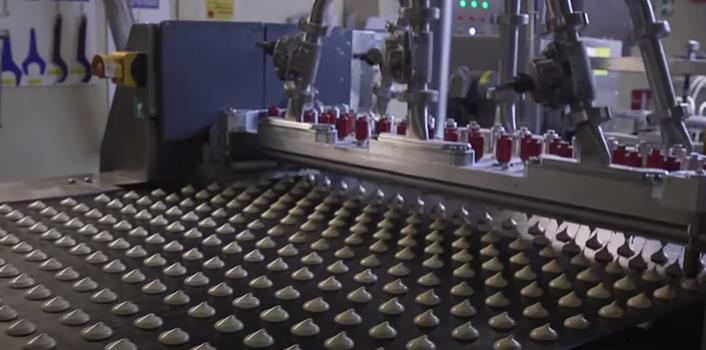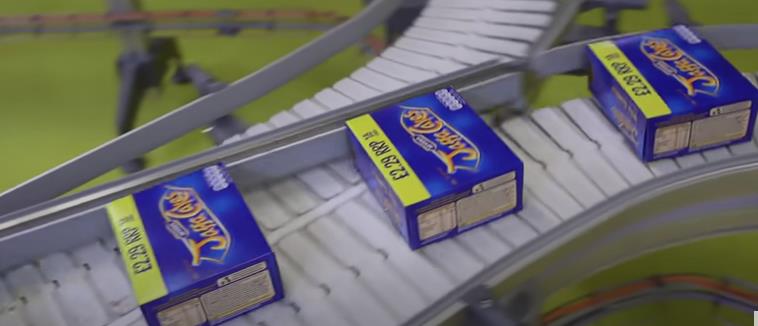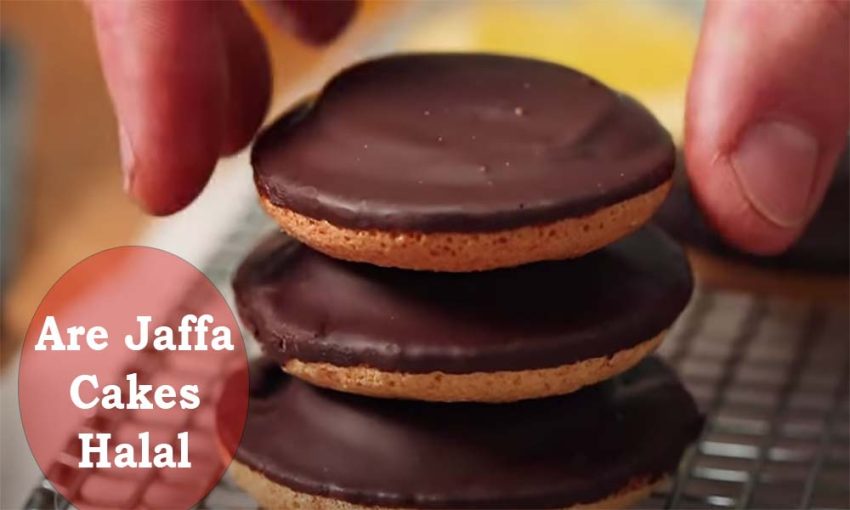Jaffa Cakes are a popular snack that people have enjoyed for decades. They are a delicious combination of a sponge base, orange jelly, and a chocolate coating. However, for Muslims, the question arises Are Jaffa Cakes halal?
Jaffa Cakes can be halal or haram, depending on the ingredients used in their production. It is essential to check the label or contact the manufacturer to confirm the halal status.
In this blog post, I will explore the ingredients of Jaffa Cakes and examine whether they are halal or not. I will also provide tips on determining if a product is halal and discuss the importance of halal certification for Muslim consumers.
Are Jaffa Cakes Halal
Jaffa Cakes are a famous snack with a base that tastes like cake, a layer of orange jelly in the middle, and a layer of chocolate. So far as I know, Jaffa Cakes don’t have any ingredients directly forbidden in Islam. Whether or not they are considered halal (allowed in Islam) depends on where the ingredients come from and how they are made.
If you are worried about whether or not Jaffa Cakes are halal, you can check the ingredients list on the package or call the maker to find out where the ingredients came from and how they were made. It would help if you also talked to a respected Islamic teacher or leader to learn more about what to do.
What Are Jaffa Cakes Made Out Of?

Jaffa Cakes are a type of cake about the size of a cookie. They have a soft sponge base, a layer of orange jelly on top, and a thin layer of chocolate on the outside. The exact ingredients in Jaffa Cakes can vary a little from brand to brand and recipe to recipe, but they usually include the following:
- Flour Sugar Eggs
- Vegetable oil
- Orange flavouring and juice
- Gelatin (which helps the jelly set)
- (For the covering) dark chocolate.
Some versions may add things like cocoa powder, milk, or stabilizers. Checking the box to see what’s in the Jaffa Cakes you’re thinking about buying is always a good idea.
HOW TO MAKE JAFFA CAKES
What Are Jaffa Cakes Legally?
An interesting question is what the law says about jaffa cakes. There has been a court battle in the UK over whether Jaffa Cakes should be taxed as cakes or cookies.
In 1991, a Value-Added-Tax (VAT) hearing was held to decide if Jaffa Cakes should be considered cakes, which don’t have to pay VAT, or biscuits, which do. The case hinged on whether Jaffa Cakes were more like cakes or cookies regarding their appearance, taste, and how they are usually eaten.
The court ruled that McVitie’s Jaffa Cakes constitute cakes. The judges noted that Jaffa Cakes are cakes, not biscuits, notwithstanding their popularity as snacks. For example, they have a soft sponge base that gets hard when they get old, and they are usually served with other cakes instead of biscuits.
So, Jaffa Cakes are caking in the eyes of the law in the UK. However, this categorization is only for tax purposes and doesn’t always reflect how consumers view Jaffa Cakes as a snack or food.
The Controversy Surrounding Jaffa Cakes And Halal Certification

There is some disagreement about whether or not jaffa cakes are kosher. Even though there don’t seem to be any haram ingredients in Jaffa Cakes, there are some worries about using some additives or processing agents that could make Jaffa Cakes not halal.
Some Islamic experts say halal food can’t have additives like E120, a red food coloring made from crushed insects. Jaffa Cakes may employ halal gelatin to set the orange jelly. If the animal wasn’t slaughtered Islamically, gelatin might not be kosher.
There may also be worries about how Jaffa Cakes are made. Jaffa Cakes may get contaminated if prepared on the same line as non-halal meals.
Because of these worries, some Muslims may only want to eat Jaffa Cakes approved as halal by a respected certification agency. A food item’s ingredients and manufacturing methods are carefully examined for halal certification. And the production sites are inspected to ensure no cross-contamination.
However, it’s important to know that not all types of Jaffa Cakes are recognized as halal. And some may have different ways of making them or sources of ingredients that could change their halal status. Before eating Jaffa Cakes, people should pay close attention to the list of ingredients and look for halal approval.
Final Thoughts
In conclusion, whether or not Jaffa Cake Halal is a matter that depends on the ingredients used in their production. Muslims who wish to consume Jaffa Cakes must ensure that the ingredients are Halal certified and free of any Haram substances. It is important to note that Halal food is not restricted to Muslims only and can be consumed by anyone.
Therefore, determining whether Jaffa Cakes are Halal requires careful attention to the ingredients. It is recommended to check the packaging for a Halal certification symbol or consult with trusted Islamic authorities for guidance. So, are Jaffa Cakes Halal? The answer lies in the ingredients used to make them.
Frequently Asked Questions With Answers
Jaffa Cakes are a popular type of small cake in the UK and other countries.
“Halal” comes from Arabic and means “allowed.” The word “Halal” refers to things Muslims are allowed to eat according to Islamic law.
You can check the box or call the company that makes Jaffa Cakes to determine if their ingredients are approved as halal. You can also look for a symbol that says “Halal” on the package or ask an Islamic expert you trust for advice.
The Halal certification mark from the Islamic Food and Nutrition Council of America (IFANCA), the halal certification mark from the Islamic Society of North America (ISNA), and the halal certification mark from the Muslim Council of Britain (MCB) are all examples of common halal certification symbols.
No, you don’t have to be a Muslim to eat Halal food. Anyone can eat halal food. Many people who are not Muslim choose to eat Halal food because it is clean, safe, and comes from a good source.
Read More:

